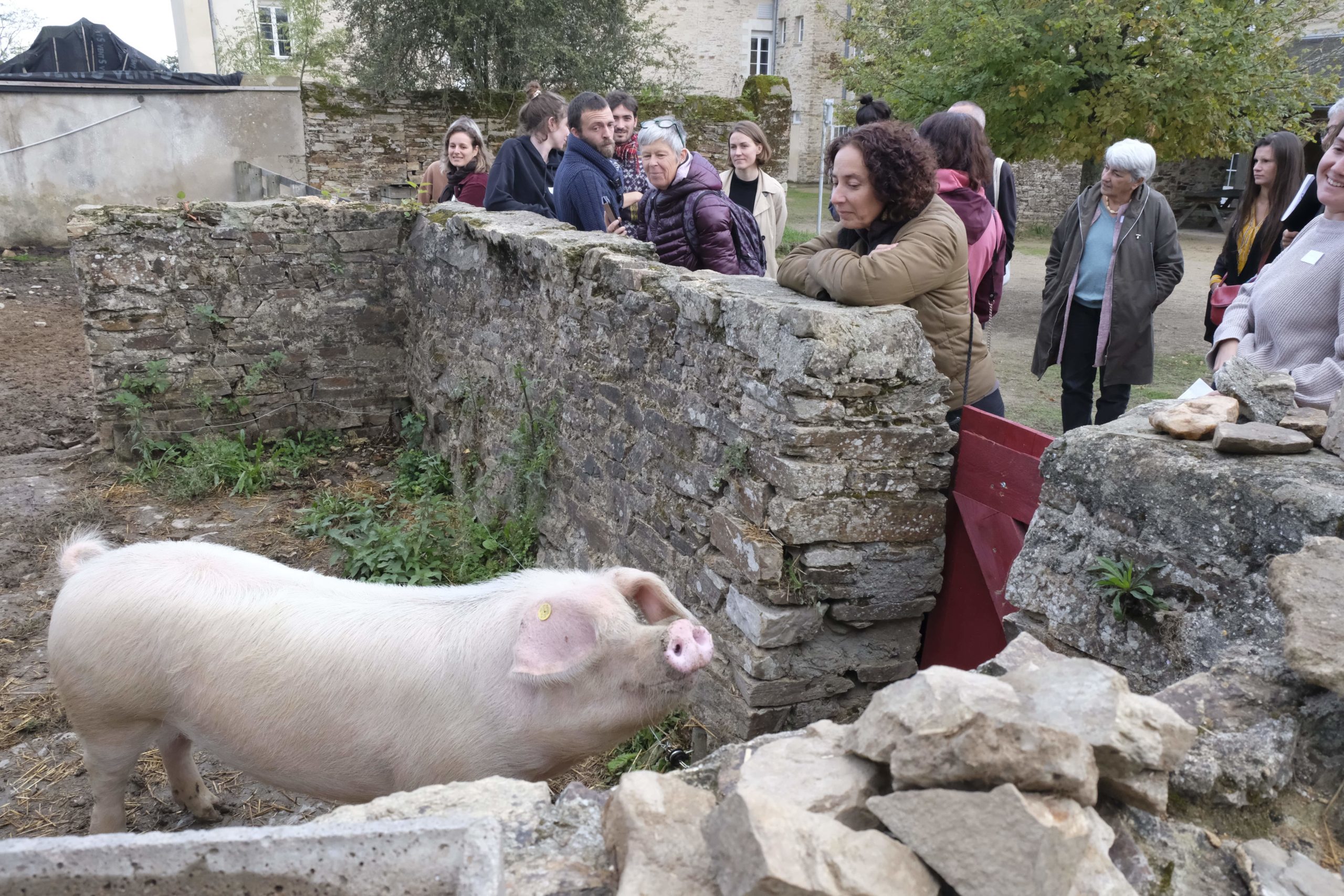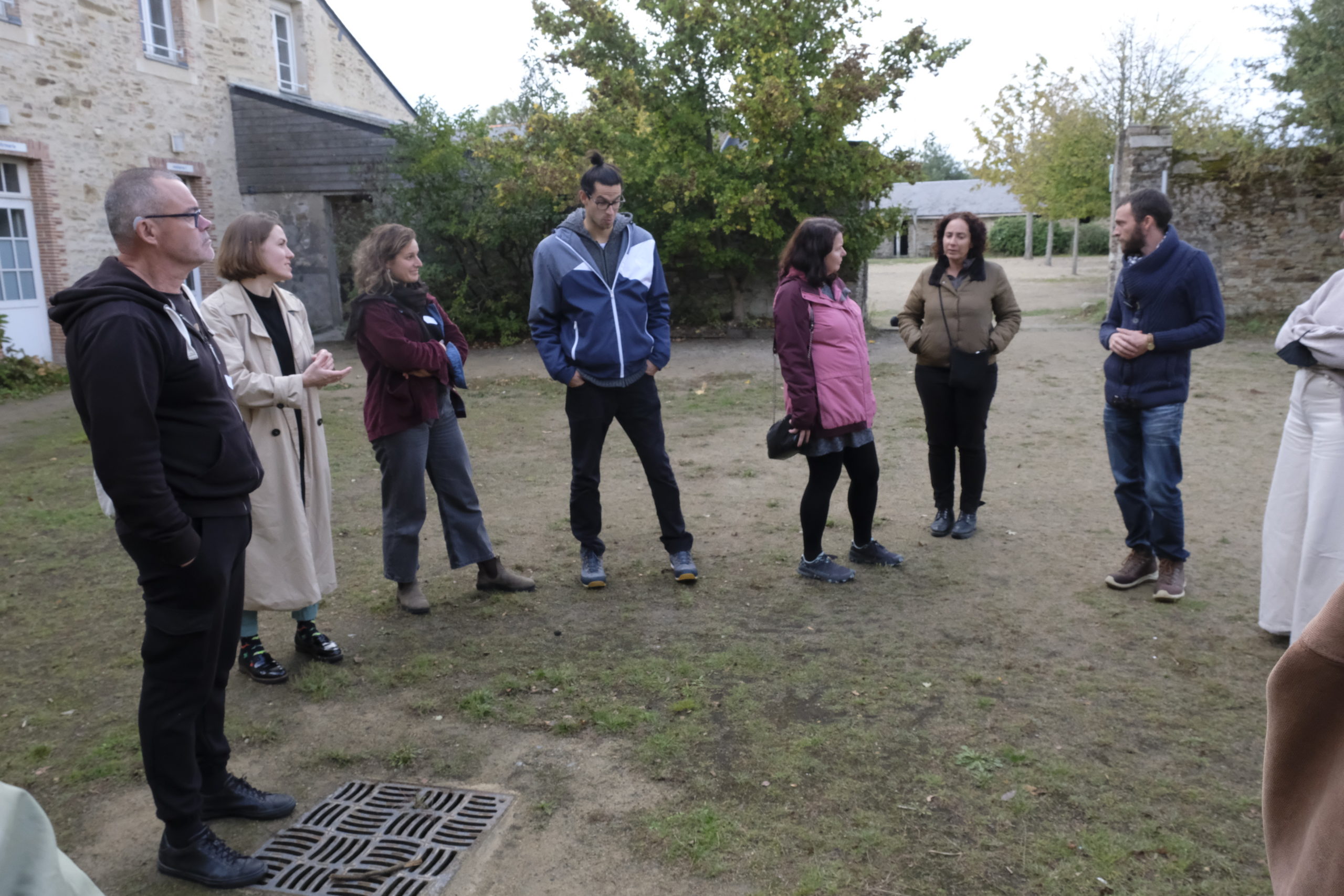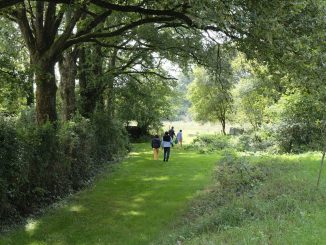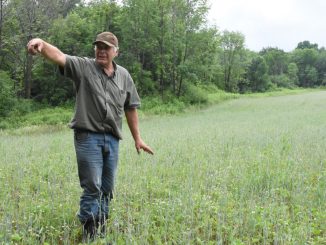In October 2022, dozens of European rural resilience actors gathered in Plessé, France. Ana Fonseca, from the agro-ecological community Montado do Freixo do Meio in Portugal joined the cohort, and shares her impressions on the philosophy and food production of the event.
Lire cet article en version française

Joining Together in Resilience
The invitation to join the Resilience Gathering hosted by ARC2020 came unexpectedly. At Montado do Freixo do Meio we have been collaborating with ARC2020 with regular news from Montado do Freixo do Meio and articles on various topics. However, Alfredo Sendim, the owner of the farm could not go and asked me if I would like to go. Of course I would, of course I like to meet people who have a similar philosophy to ours about how farming should be, as well as food production.
Is it tiring? Yes. Do we work hard the few days we are together to make the most of the time? Yes. But we also meet very stimulating farmers: some are stimulating because they are young and full of contagious enthusiasm, others because they already have a long track record of successes and mistakes that they share with us with great generosity, or even others because they have similar activities to us but have discovered new solutions to problems that we also have. In this way, we were able to meet sustainable and resilient farmers from such different European regions as Spain, Portugal, Ireland, Greece, and the Czech Republic.
It was surprising to learn about the reality of the farmers in the municipality of Plessé. The round tables of the long day of debates at the cooperative farm of Le Buis Sonnant were a demonstration of the depth that runs through all the speeches. And further, these talks demonstrated the courage and passion with which they address issues that in Portugal walk between taboo and lack of recognition. The two round tables in the morning addressed the topics, respectively, “Let’s change our representations – from the small producer to the large restaurant” and “The vulnerability of the professions linked to food, in the face of the market and the globalised world”. In the afternoon, “Violence at work, in the kitchen and in the fields” and “Feeding everyone: with what and at what price?” were also addressed. The constant presence, throughout the day, of many farmers, cooks associated with public canteens, and representatives of local governing bodies demonstrated a commitment to tackling these issues which are a challenge not only in France but also around the world.
We were well cared for by the farmers who welcomed us and even sang, played, and animated the hosts, making everyone dance to Celtic-inspired music and spend the energies accumulated during the day.
We were able to enjoy the delicious lunch and dinner, prepared in a makeshift kitchen in one of the farm’s spaces, located between the bale shed and the milking parlour and served by the chefs of Alliance-des-Cuisiniers. Made with local, seasonal products and plenty of creativity, they allowed us to appreciate the whole “food issue”, of which flavours, sharing and conviviality are fundamental parts.

Cross Pollinating Ideas
Some of the experiences that were shared during this meeting are so interesting and innovative that they deserve to be replicated in Portugal, namely the agricultural machinery cooperative that acquires machinery according to the needs of its members for joint use. The existence of this cooperative gives farmers access to a wide choice of machinery and equipment that they could never buy individually. Another interesting aspect of this cooperative is the fact that it represents, for its members, a space for the exchange of ideas and learning, very useful for young farmers who are still learning the secrets of the job. Contrary to what is the norm in this type of entity associated with agriculture, these cooperatives also bring together organic and conventional producers. The non-segregation leads to dialogue, learning through practice and sometimes cross-contamination between different production methods.
Other practices and phenomena that I observed in France are relatively like those I can observe in our region, such as the electoral list that won the last elections, made up of new people full of the will to address issues regarding minorities and environmental and social sustainability. This path is also being followed in our region, with the creation of joint electoral program by all those who want to participate. However, in our region, only managed to convince 35 people in the most recent elections.
In addition to exploring diverse examples associated with the issue of food in the local reality of the municipality of Plessé and meeting colleagues from different parts of Europe, we were able to reflect on the lessons learnt, the strengths and weaknesses of our activity and also important messages to pass on to political decision-makers about the specificities and needs of these ways to produce food on local and resilient food systems.
The lasting impression is to repeat this experience and to embark on joint projects, with inspiring partners, in defense of an agriculture that respects the environment, biodiversity and above all the physical and social well-being of the communities involved. A warm welcome to all involved!
Keep Reading
France | Meet The Farmer-Bakers Proving Their Skills – part 2
Rural Realities | Succession – Passing It (All) On To The Next Generation
Cultivating The Future Together – ARC’s Rural Resilience Gathering in France





